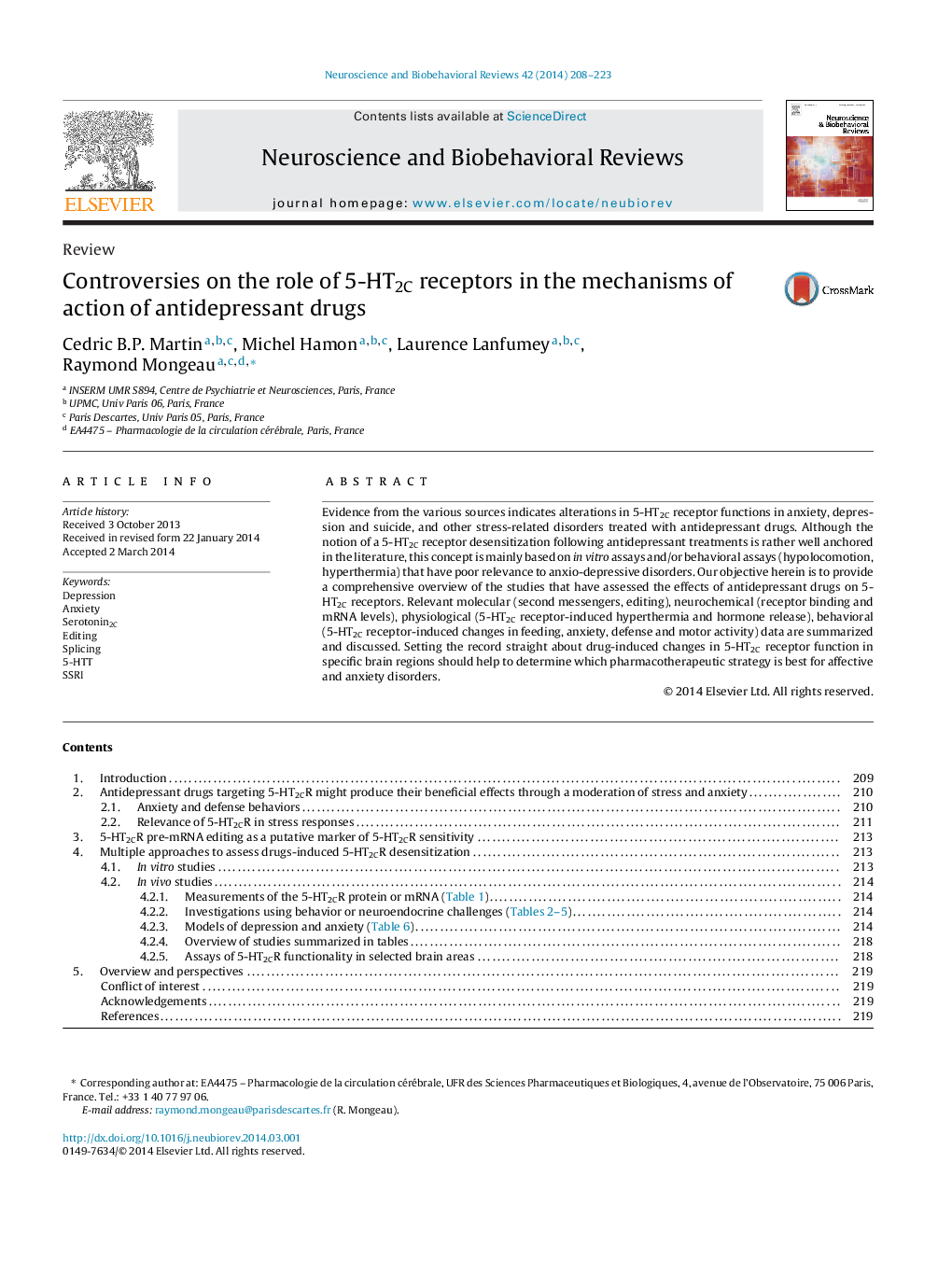| Article ID | Journal | Published Year | Pages | File Type |
|---|---|---|---|---|
| 7304109 | Neuroscience & Biobehavioral Reviews | 2014 | 16 Pages |
Abstract
Evidence from the various sources indicates alterations in 5-HT2C receptor functions in anxiety, depression and suicide, and other stress-related disorders treated with antidepressant drugs. Although the notion of a 5-HT2C receptor desensitization following antidepressant treatments is rather well anchored in the literature, this concept is mainly based on in vitro assays and/or behavioral assays (hypolocomotion, hyperthermia) that have poor relevance to anxio-depressive disorders. Our objective herein is to provide a comprehensive overview of the studies that have assessed the effects of antidepressant drugs on 5-HT2C receptors. Relevant molecular (second messengers, editing), neurochemical (receptor binding and mRNA levels), physiological (5-HT2C receptor-induced hyperthermia and hormone release), behavioral (5-HT2C receptor-induced changes in feeding, anxiety, defense and motor activity) data are summarized and discussed. Setting the record straight about drug-induced changes in 5-HT2C receptor function in specific brain regions should help to determine which pharmacotherapeutic strategy is best for affective and anxiety disorders.
Related Topics
Life Sciences
Neuroscience
Behavioral Neuroscience
Authors
Cedric B.P. Martin, Michel Hamon, Laurence Lanfumey, Raymond Mongeau,
